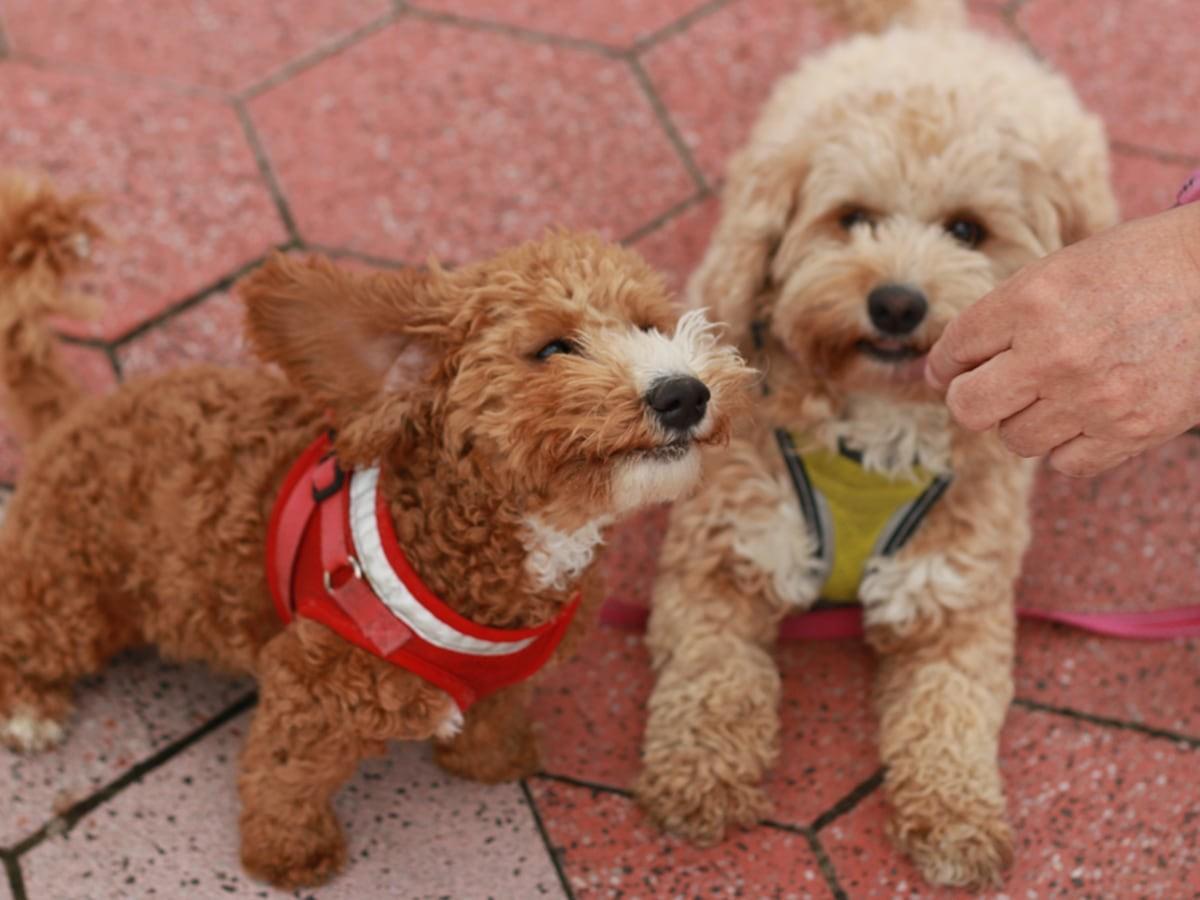Cashews are a nutritious snack for humans, packed with vitamins, minerals, and antioxidants. But can dogs eat cashews too?
Yes, dogs can eat cashews in moderation, but there are some important safety considerations to keep in mind.
Are Cashews Safe for Dogs?
While cashews are not toxic to dogs like some other nuts (e.g., macadamia nuts), they are not necessarily a healthy treat option either. They can be safe in small quantities and if your dog is not allergic to them, but it's important to be aware of the potential risks:1
High in Fat: Cashews are high in fat, which can lead to pancreatitis (inflammation of the pancreas) in dogs, especially if consumed regularly or in large amounts. Symptoms of pancreatitis in dogs from cashews include vomiting, diarrhea, abdominal pain, and lethargy.
Potential for Allergies: Some dogs may be allergic to cashews, experiencing symptoms like itching, redness, swelling, or gastrointestinal upset. If you notice any of these signs after your dog eats cashews, consult your veterinarian.
Health Benefits and Risks of Cashews for Dogs
Benefits: Cashews contain protein, fiber, and heart-healthy fats, which can be beneficial in small amounts. They also offer vitamins and minerals like magnesium, zinc, and copper2.
Risks: The high fat content can lead to pancreatitis and obesity. Cashews can also be a choking hazard, especially for small dogs. Salted or seasoned cashews can pose additional risks due to high sodium content and potentially harmful spices.2
Can Dogs Eat Cashew Butter?
Yes, dogs can eat cashew butter, but only if it's plain, unsalted, and unsweetened. Avoid cashew butter with added sugar, salt, or xylitol (a sugar substitute toxic to dogs). Start with a small amount and monitor your dog for any adverse reactions.2
What Happens if My Dog Eats Cashews?
If your dog eats a few unsalted and unseasoned cashews, they will likely be fine. However, monitor them for any signs of an allergic reaction or digestive upset. If they consume a large amount or show concerning symptoms, contact your veterinarian immediately.
What Nuts are Toxic for Dogs?
Macadamia Nuts: These are highly toxic to dogs and can cause weakness, tremors, vomiting, and hyperthermia.3
Walnuts: While not as toxic as macadamia nuts, walnuts can cause gastrointestinal upset.3
Pecans: These can also cause digestive upset and may contain juglone, a toxin that can be harmful in large quantities.3
How Many Cashews Can I Give My Dog?
Due to the high fat content, cashews should only be given as an occasional dog treat. A good rule of thumb is to limit your dog's treat intake to 10% of their daily calories. For small dogs, this might mean just one or two cashews, while larger dogs may tolerate a few more.
Are Cashews or Peanuts Better for Dogs?
Both cashews and peanuts are safe for dogs in moderation, but peanuts are generally considered a healthier option due to their lower fat content.
Expert Insights From Spot
While sharing our favorite foods with our pets can be tempting, it's important to remember that not all human foods are safe for dogs. Spot's internal data shows that pet insurance claims for dietary indiscretions average $642*, underscoring the importance of caution and research before sharing snacks with our pets.
Key Takeaways
In conclusion, while cashews are not toxic to dogs, they should only be given in moderation as an occasional treat due to their high fat content and potential for allergies. Always choose unsalted, unseasoned cashews and monitor your dog for any adverse reactions. If you have any concerns about your dog's diet, consult your veterinarian for personalized advice.

If you need a story or someone to talk to your cat like a person, I’m your person. With 3 cats, 1 dog, and a lifetime of pets, I write from experience, usually with a cat on my keyboard and a dog in my lap.
*Jan 2019 to Aug 2024 Spot Pet Insurance Services, LLC claims data.
Victoria Lynn Arnold. “Can Dogs Eat Cashews?” Petmd.com, PetMD, 28 Dec. 2022, www.petmd.com/dog/nutrition/can-dogs-eat-cashews.
“Can Dogs Eat Cashews? Tips for Feeding Cashews to Dogs - 2024.” MasterClass, www.masterclass.com/articles/can-dogs-eat-cashews.
Turner, Beth. "Safe and Unsafe Nuts and Seeds For Dogs & Cats." Preventive Vet, 09 Sep. 2025, https://www.preventivevet.com/pets/safe-and-unsafe-nuts-and-seeds-for-pets.
The information presented in this article is for educational and informational purposes only and does not constitute or substitute for the advice of your veterinarian.











